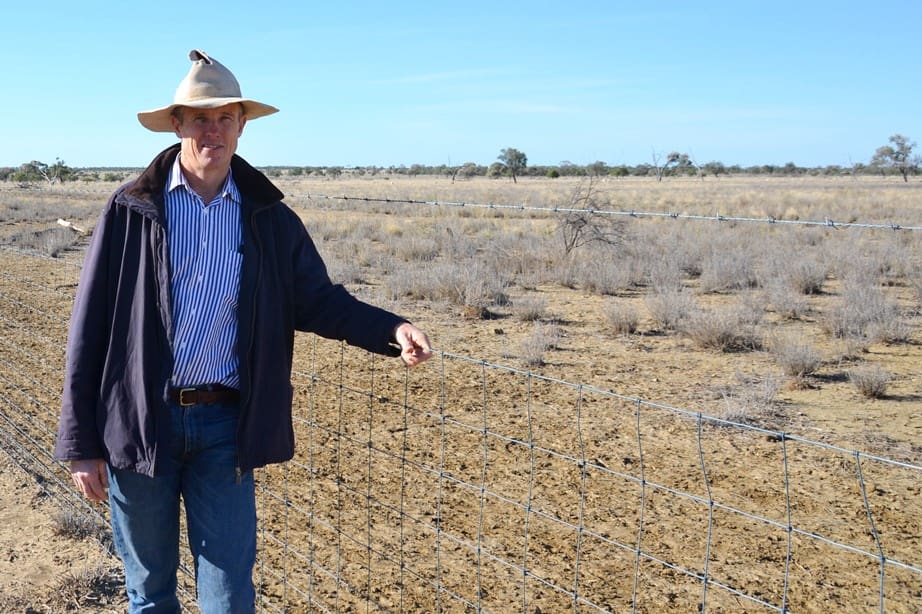NEW exclusion fencing technologies have come to the rescue of Barcaldine, Central western Queensland sheep producer David Counsell as wild dogs and biosecurity risks challenge his family’s sheep operation.
Mr Counsell and wife Genevieve, operate Dunblane, a 15,000ha Mitchell grass property west of Barcaldine encompassing 15,000 Merino sheep along with 500 head of agistment cattle when seasons allow.

Barcaldine (Central western QLD) sheep producer David Counsell said without exclusion fencing, his property would be left unviable for sheep, due to an influx of wild dogs.
Wild dogs and livestock diseases have been a serious threat to the Counsells’ business but strategic exclusion fencing has given them confidence to overcome this costly impediment to production.
Mr Counsell said without exclusion fencing, his property would be left unviable for sheep, due to an influx of wild dogs.
“Wild dogs are a massive problem for us and unless they are fenced out, I would have to leave the sheep industry, run cattle and become a part-time producer. We don’t have the scale to be a viable full-time beef property,” he said.
“The sheep side of my business would not exist in five years’ time if it weren’t for these fences.”
The fences also prevented separate sheep flocks from mixing, and spreading lice as well as other diseases.
Mr Counsell said several simple yet effective technologies developed by fence manufacturer Waratah had helped address the problem areas of a fence for controlling feral animals.
“Typically, animals target the bottom section of a fence, and Waratah’s strengthening of these problems areas has been a factor in keeping out unwanted animals,” he said.
“The second breakthrough is the footer or apron attached to the bottom of the fence. This is attached via a hinge, and its sturdiness stops animals from either side burrowing underneath.”
In an industry like agriculture with high input expenses, cost is sometimes sighted as a barrier to producers installing exclusion fences. However, Mr Counsell said it is an investment that reaps financial returns.
“An average installation price for us is $6000-$8000 per kilometre and while that is not necessarily the cheapest fence out there, we wouldn’t have been able to stay in the sheep industry without this level of quality,” he said.
Source: Waratah



HAVE YOUR SAY